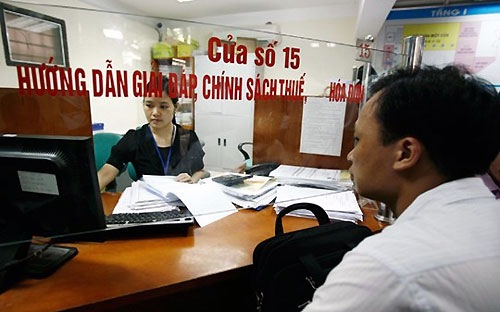This is an important detail in the Law on Enterprises 2020 officially passed by the XIV National Assembly in its 9th session on June 17, 2020.

The abolition of rules on tenure of common shares ownership from January 1, 2021 - Illustrative image
To be specific, in Clause 2, Article 115 of the Enterprise Law 2020, the provision requiring shareholders or a group of shareholders to hold common shares for a continuous period of at least 06 months, stipulated previously in Clause 2, Article 114 of the Enterprise Law 2014, has been abolished.
Shareholders or a group of shareholders owning 05% (currently 10%) or more of the total common shares or a smaller ratio as stipulated in the company's Charter shall have the following rights:
- To review, inspect, and extract the minutes book and resolutions, decisions of the Board of Directors, mid-year and annual financial reports, supervisory board reports, contracts, transactions approved by the Board of Directors, and other documents excluding those relating to company trade secrets and business secrets;
- To request to convene a General Meeting of Shareholders in certain cases stipulated in Clause 3, Article 115 of the Enterprise Law 2020;
- To request the Supervisory Board to inspect specific issues related to company management and operation when deemed necessary. The request must be in writing and must include the following information: full name, contact address, nationality, legal document number for individual shareholders; name, enterprise code or legal document number of the organization, head office address for organizational shareholders; number of shares and time of share registration of each shareholder, total number of shares of the group of shareholders, and the ownership percentage in total company shares; the issue to be inspected, purpose of inspection;
- Other rights as stipulated by the Enterprise Law 2020 and the company's Charter.
Note: Shareholders or the group of shareholders mentioned above have the right to request to convene a General Meeting of Shareholders in the following cases:
- The Board of Directors seriously violates shareholders' rights, managers' duties, or makes decisions beyond their authorized competence;
- Other cases as stipulated by the company's Charter.
The request to convene a General Meeting of Shareholders must be in writing and must include the following information: full name, contact address, nationality, legal document number for individual shareholders; name, enterprise code or legal document number of the organization, head office address for organizational shareholders; number of shares and time of share registration of each shareholder, total number of shares of the group of shareholders, and the ownership percentage in total company shares, basis and reason for the request to convene the General Meeting of Shareholders.
The request to convene a meeting must be accompanied by documents and evidence of the Board of Directors' violations, the level of violation, or decisions beyond their authorized competence.
Nguyen Trinh
 Article table of contents
Article table of contents





.Medium.png)
.Medium.png)
.Medium.png)
.Medium.png)
